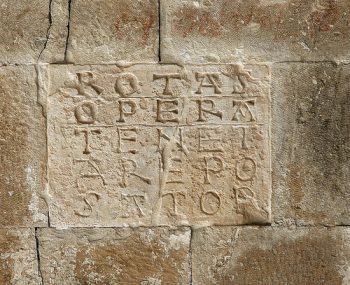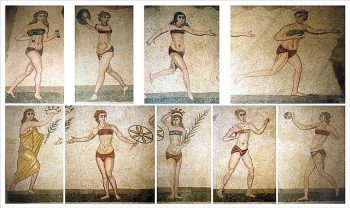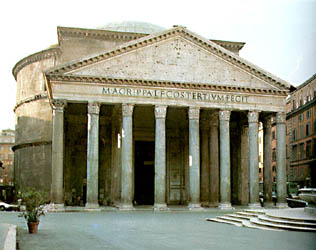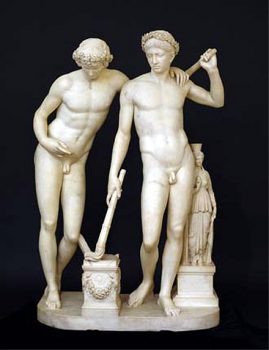Archive for May, 2012
Latin Palindromes Posted by leire on May 31, 2012
These are texts or phrases that can be read from left to right or from right to left. Here are some examples: In girum imus nocte et consumimur igni (We go about in the night and are consumed by fire.) Called ‘the verse of the devil’ they said that the devil himself taught a seminarian…
Roman soccer Posted by leire on May 29, 2012
“It is the game I like the most. It is very intense exercise and you get very tireds by dribbling and turning the neck back violently. So Antiphanes says: “damn, what neck pain!” And commenting the match he said: “He took the ball and passed it to aplayer while dodging another playing laughing. He put…
Latin can be fun! Posted by leire on May 21, 2012
Today we will list some online resources where you can find funny uses of Latin language. (Click on the titles to see the web sites). 1. Fun Latin In this site you will find funny Latin sentences (and their translation to English) to use in any daily situation. It is very useful if you did…
Roman Gods and Goddesses Posted by leire on May 15, 2012
GREEK NAME ROMAN NAME ROLE Aphrodite Venus Goddess of beauty and sexual desire (in Roman mythology also goddess of the fields and gardens) Apollo Phoebus God of prophecy, medicine and archery (later Greco-Roman mythology: god of the Sun) Ares Mars God of war Artemis Diana Goddess of hunting (later Greco-Roman mythology: goddess of the Moon)…
Roman mythology III Posted by leire on May 11, 2012
Religious festivities The Roman religious calendar reflected Rome’s hospitality to the cults and deities of conquered territories. Originally there were few Roman religious festivals. Some of the oldest survived until the end of the pagan empire, preserving the memory of the fertility and propitiatory rites of a primitive agricultural people. However they introduced new festivities…
Roman mythology II Posted by leire on May 8, 2012
Inclusion of other deities Roman primitive religions were modified both by the addition of new beliefs in later times, and for the assimilation of a great part of Greek mythology. Thus, Roman religion was consolidated before the start of the literary tradition, therefore, the early Roman writers who wrote about their religion were unaware of…






